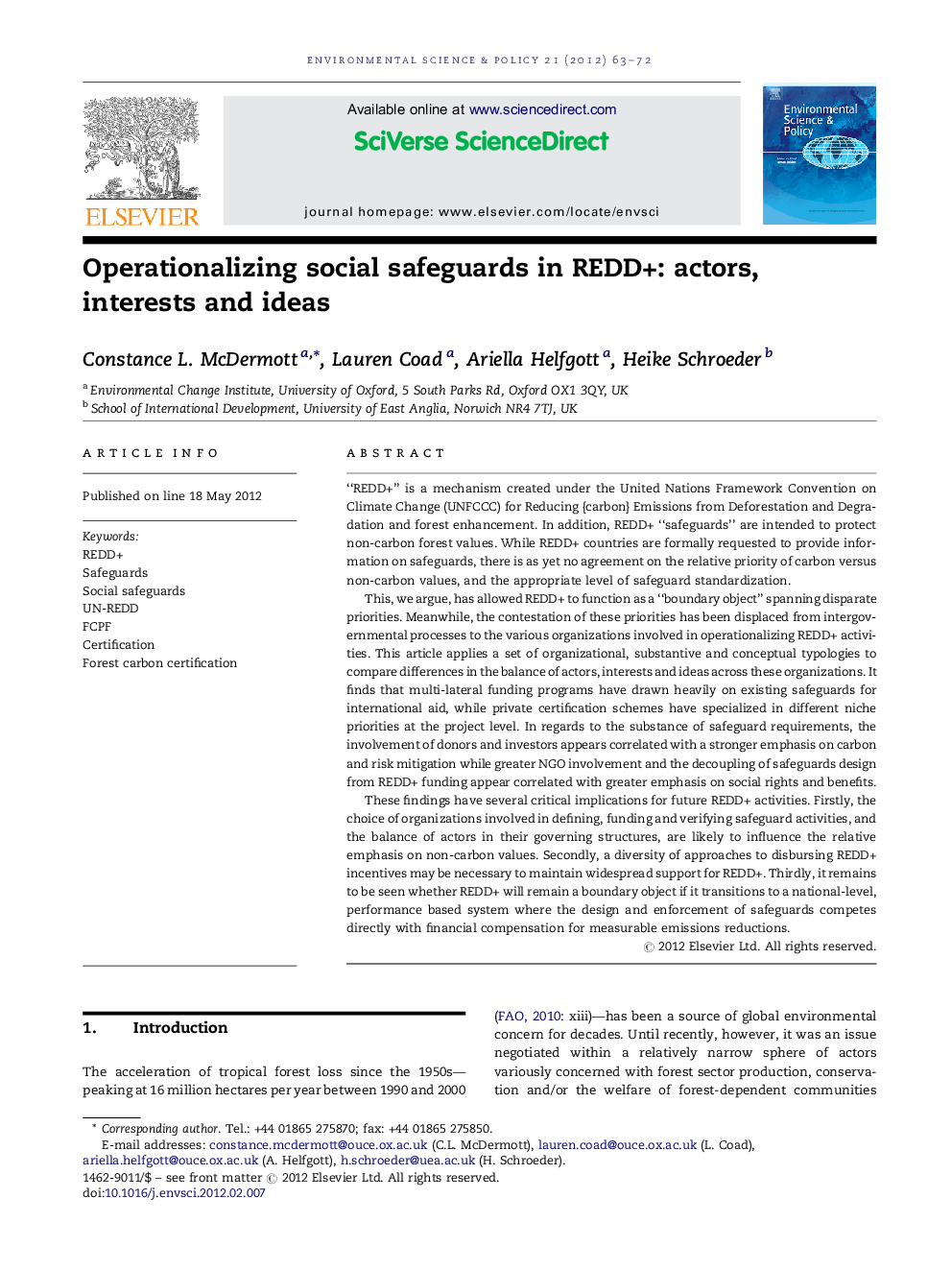| کد مقاله | کد نشریه | سال انتشار | مقاله انگلیسی | نسخه تمام متن |
|---|---|---|---|---|
| 1053683 | 1485085 | 2012 | 10 صفحه PDF | دانلود رایگان |

“REDD+” is a mechanism created under the United Nations Framework Convention on Climate Change (UNFCCC) for Reducing {carbon} Emissions from Deforestation and Degradation and forest enhancement. In addition, REDD+ “safeguards” are intended to protect non-carbon forest values. While REDD+ countries are formally requested to provide information on safeguards, there is as yet no agreement on the relative priority of carbon versus non-carbon values, and the appropriate level of safeguard standardization.This, we argue, has allowed REDD+ to function as a “boundary object” spanning disparate priorities. Meanwhile, the contestation of these priorities has been displaced from intergovernmental processes to the various organizations involved in operationalizing REDD+ activities. This article applies a set of organizational, substantive and conceptual typologies to compare differences in the balance of actors, interests and ideas across these organizations. It finds that multi-lateral funding programs have drawn heavily on existing safeguards for international aid, while private certification schemes have specialized in different niche priorities at the project level. In regards to the substance of safeguard requirements, the involvement of donors and investors appears correlated with a stronger emphasis on carbon and risk mitigation while greater NGO involvement and the decoupling of safeguards design from REDD+ funding appear correlated with greater emphasis on social rights and benefits.These findings have several critical implications for future REDD+ activities. Firstly, the choice of organizations involved in defining, funding and verifying safeguard activities, and the balance of actors in their governing structures, are likely to influence the relative emphasis on non-carbon values. Secondly, a diversity of approaches to disbursing REDD+ incentives may be necessary to maintain widespread support for REDD+. Thirdly, it remains to be seen whether REDD+ will remain a boundary object if it transitions to a national-level, performance based system where the design and enforcement of safeguards competes directly with financial compensation for measurable emissions reductions.
► Safeguards enable REDD+ to gain support as a “boundary object” meaning different things to different actors.
► These different meanings are reflected in different approaches to safeguards.
► Donor involvement is correlated with an emphasis on carbon and managing risk, while NGOs emphasize non-carbon values.
► The decoupling of safeguards from funding requirements appears correlated with a greater emphasis on non-carbon values.
► The involvement of a diversity of organizations in operationalizing REDD+ may be necessary to maintain widespread support.
Journal: Environmental Science & Policy - Volume 21, August 2012, Pages 63–72